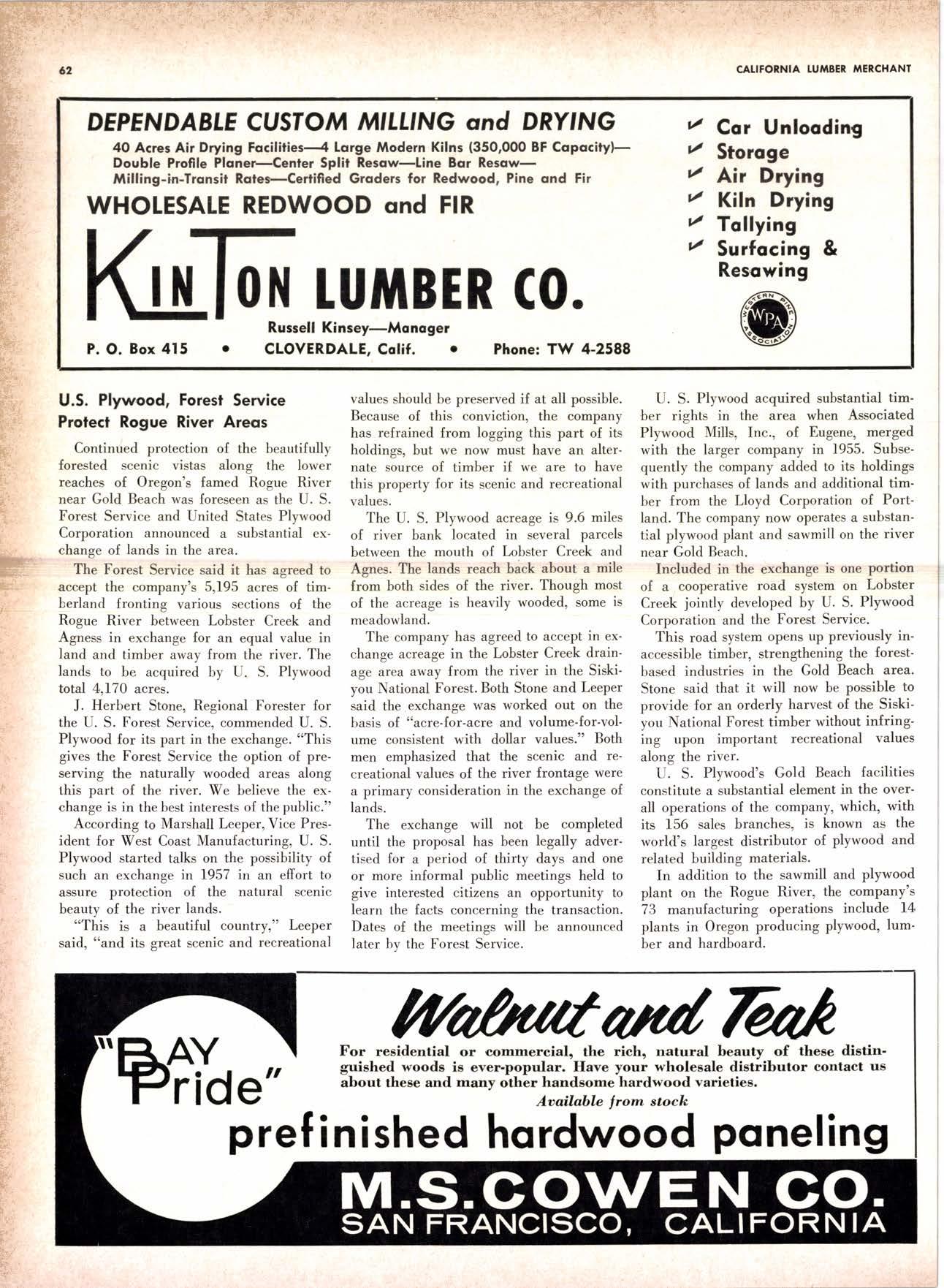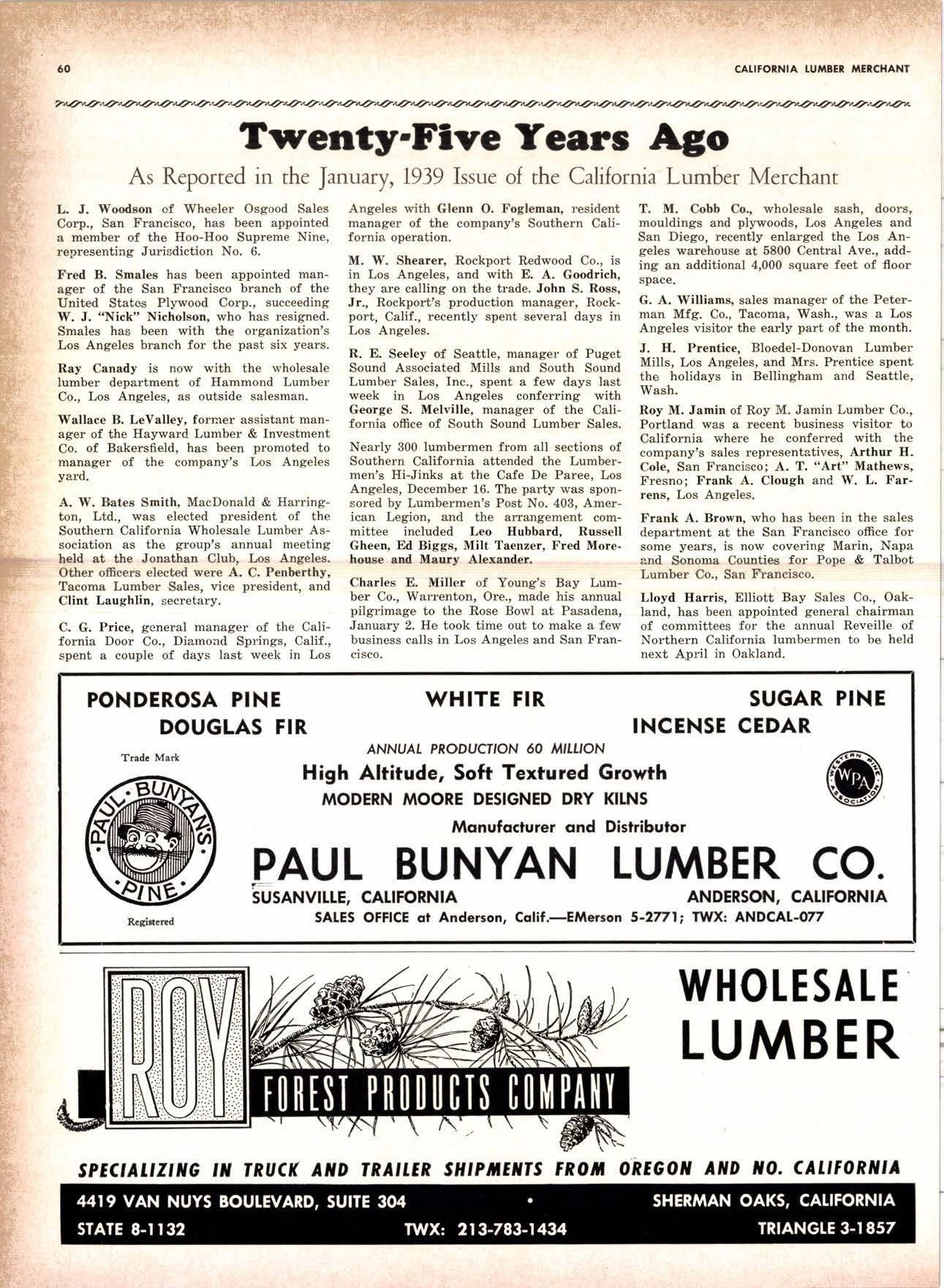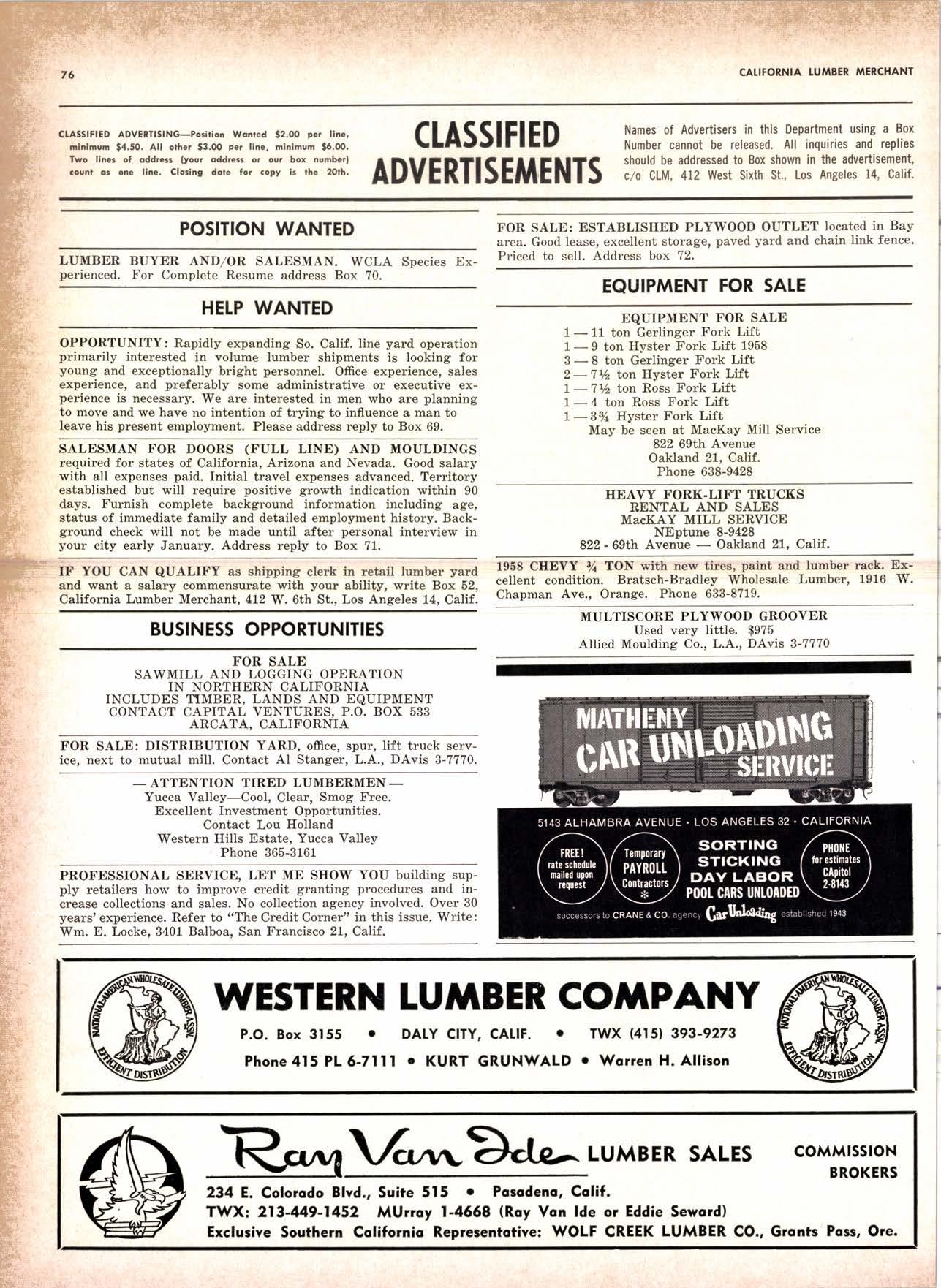
2 minute read
(|N TUTUIBER CO.
O. Box 415
R,ussell Kinsey-Monogel CLOVERDALE, Colif. o Phone: TW 4-2588
U.S. Plywood, Forest Service
Protecl
Rogue River Areqs
Continued protection of the beautifully forested scenic vistas along the lower reaches of Oregon's famed hogue River near Gold Beach was foreseen as the U. S. Forest Service and United States Plywood Corporation announced a substantial exchange of lands in the area.
The Forest Service said it has agreed to accept the company's 5,195 acres of timberland frontine various sections of the Rogue River bJt*een Lobster Creek and Agness in exchange for an equal value in land and timber away from the river. The lands to be acquired by U. S. Plywood total 4,170 acres.
J. Herbert Stone, Regional Forester {or the U. S. Forest Service, commended U. S. Plywood for its part in the exchange. "This gives the Forest Service the option of preserving the naturally wooded areas along this part of the river. We believe the exchange is in the best interests of the public."
According to Marshall Leeper, Vice President for West Coast Manufacturing, U. 5. Plywood started talks on the possibility of such an exchange in 1957 in an effort to assure protection of the natural scenic beauty of the river lands.
"This is a beautiful country," Leeper said, "and its great scenic and recreational values should be preserved if at all possible. Because of this conviction, the company has refrained from logging this part of its holdings, but we now must have an alternate source of timber if we are to have this property for its scenic and recreational values.
The U. S. Plywood acreage is 9.6 miles of river bank located in several parcels between the mouth of lobster Creek and Agnes. The lands reach back about a mile from both sides of the river. Though most of the acreage is heavily wooded, some is meadowland.
The company has agreed to accept in exchange acreage in the l,obster Creek drain' age area away from the river in the Siski' you National Forest. Both Stone and Leeper said the exchange was worked out on the basis of "acre-for-acre and volume-for-vol' ume consistent with dollar values." Both men emphasized that the scenic and recreational values of the river frontage were a primary consideration in the exchange of lands.
The exchange will not be completed until the proposal has been legally advertised for a period of thirty days and one or more informal public meetings held to give interested citizens an opportunity to learn the facts concerning the transaction. Dates of the meetings will be announced Iater hy the Forest Service.
U. S. Plywood acquired substantial timber rights in the area when Associated Plywood Mills, Inc., of Eugene, merged with the larger company in 1955. Subsequently the company added to its holdings with purchases of lands and additional timber from the Lloyd Corporation of Port' land. The company now operates a substan' tial plywood plant and sawmill on the river near Gold Beach.
Included in the exchange is one portion of a cooperative road system on Lobster Creek jointly developed by U. S. Plywood Corporation and the Forest Service.
This road system opens up previously inaccessible timber, strengthening the forestbased industries in the Gold Beach area. Stone said that it will now be possible to provide for an orderly harvest of the Siskiyou National Forest timber without infring' irg upon important recreational values alons the river.
U. S. Plywood's Gold Beach facilities constitute a substantial element in the over' all operations of the company, which, with its 156 sales branches, is known as the world's largest distributor of plywood and related building materials.
In addition to the sawmill and plywood plant on the Rogue River, the company's 73 manufacturing operations include 14 plants in Oregon producing plywood, lum' ber and hardboard.










